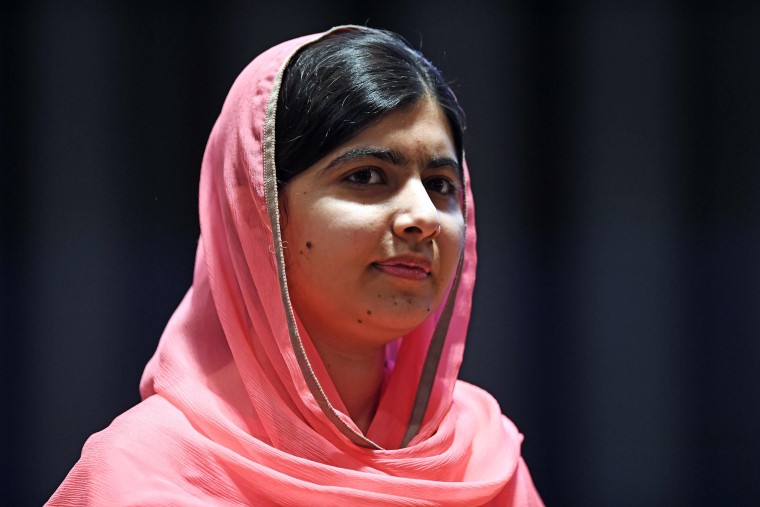PESHAWAR, Pakistan — Nobel Peace Prize laureate Malala Yousafzai returned to Pakistan Thursday for the first time since the Taliban tried to end her campaign for female education by shooting the then-schoolgirl in the head.
Instead of being silenced by the 2012 attack that gravely wounded her, Yousafzai went on to become a globally recognized advocate for moderation and children's education.
"The visit was kept a secret due to security issues," a relative said on condition of anonymity after the 20-year-old Yousafzai was greeted at Benazir Bhutto International Airport in Islamabad by government and security officials. She was taken to a hotel under tight security, the family member added.
However, she will not travel to the Swat Valley in the north of the country, where the shooting occurred.
"It was a month ago when she decided to visit Pakistan at any cost," said a second relative who spoke on the condition of anonymity out of fear of Taliban reprisals.
As an 11-year-old, Yousafzai started an anonymous diary describing a girl's thirst for education. She is now a student at Oxford University in England.
Once known as the Switzerland of Pakistan, Swat was under the Taliban's harsh rule between 2007 and 2009, during which they banned music and tried to halt female education. In 2009, Pakistan's army launched a massive offensive against militants, pushing them largely out of the valley. Still, some fighters and sympathizers remain and continue to threaten and kill critics.
Yousafzai had already won international acclaim as an advocate for women's education when she caught the attention of the Taliban. On Oct. 9, 2012, a gunman stormed her school bus in the city of Mingora and shot her in the face at point-blank range. The Taliban said at the time that the attack was meant to punish Yousafzai for promoting Western culture and speaking out against the militants.
She was critically wounded but recovered at a hospital in Britain.
Since then, she has become a worldwide symbol of female empowerment, founding the Malala Fund, a charity dedicated to giving all girls access to education, with her father, Ziauddin.
"This award is not just for me," she said when accepting the Nobel on Dec. 10, 2014. "It is for those forgotten children who want education. It is for those frightened children who want peace. It is for those voiceless children who want change."
While her campaigning has taken her around the world, Yousafzai has also harbored a desire to return to her homeland.
She told David Letterman in a recent episode of his Netflix interview series that she had been searching for an opportunity to travel to Pakistan.
"I want my feet to touch that land and to be there," she said.
Mushtaq Yusufzai reported from Peshawar, Ethan Sacks from New York and Alex Johnson from Los Angeles.

